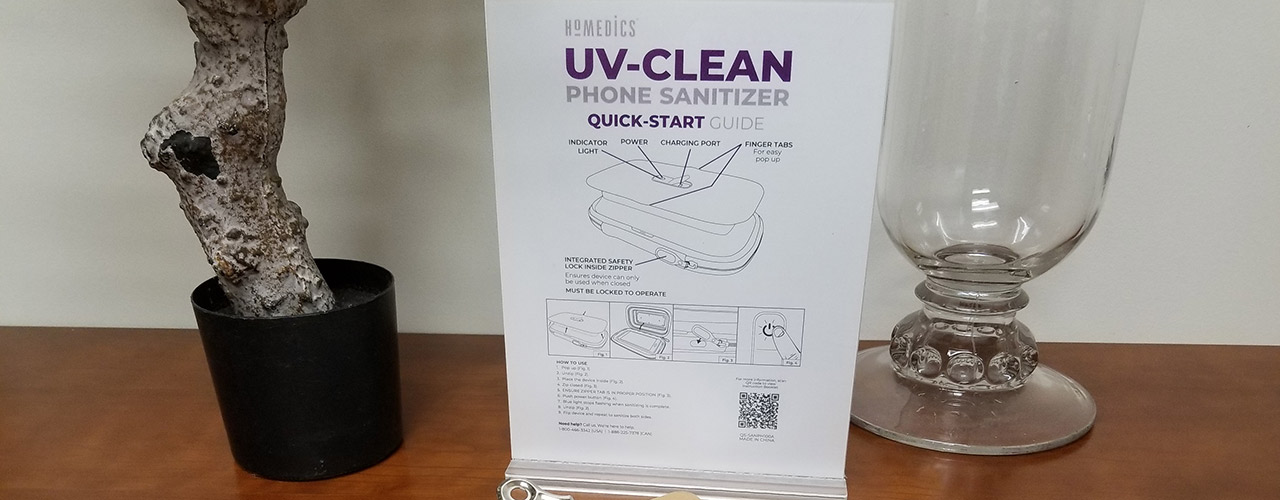by Bryson Durst, Student Public Relations Writer
Hand sanitizing stations dot schools, hospitals, and many other public buildings, inviting people to clean their hands and prevent infection. In the future, will people sanitize their phones, masks, or other personal belongings in these public spaces as well?
Drs. Elisha Injeti, Rocco Rotello, and Tim Veenstra, associate professors of pharmaceutical science in Cedarville’s school of pharmacy, believe that may just be the case. Though ultraviolet (UV) sanitizing boxes are available online for personal use, the professors wanted to test how useful a public UV sanitizing station would be for the general public.
Last school year, the researchers placed a UV sanitizing station in the school of pharmacy and encouraged students to use it. The station was designed to be quick and built for an individual to use with a variety of devices. Over a 24-day period, the researchers studied how often students used the station and for what purposes.
They were originally motivated to test these stations to sanitize masks.
“We noticed that students were always wearing masks, and there was no really good way for them to sanitize their masks except to wash them,” Veenstra said.
Phones, not masks, were by far the item students chose to sanitize most — of the 38 station uses, 79% of them were for smartphones. Students also used the station to clean their glasses, keys, watches, and masks. Veenstra said the results demonstrate a potential interest in these sanitizing stations, though the team will need to do more research to be sure.
Veenstra believes UV sanitizing stations will still be useful once the pandemic ends.
“The pandemic has changed the way that we become aware of germs,” Veenstra explained. “I think we’re going to become more sensitive to our opportunity to become infected.”
For example, he believes that masks may find continued use during flu season. Outside of masks, phones will continue to be important products — and germy surfaces — until something more advanced replaces them. UV sanitizing stations can help clean both.
As for their next steps, the researchers hope to build a touchless prototype and place it in a busier area of Cedarville’s campus. If it proves useful there, they envision similar devices being used in public locations like universities, hospitals, schools and airports.
Located in southwest Ohio, Cedarville University is an accredited, Christ-centered, Baptist institution with an enrollment of 4,715 undergraduate, graduate and online students in more than 150 areas of study. Founded in 1887, Cedarville is one of the largest private universities in Ohio, recognized nationally for its authentic Christian community, rigorous academic programs, including the Doctor of Pharmacy program, strong graduation and retention rates, accredited professional and health science offerings and high student engagement ranking. For more information about the University, visit cedarville.edu.




















